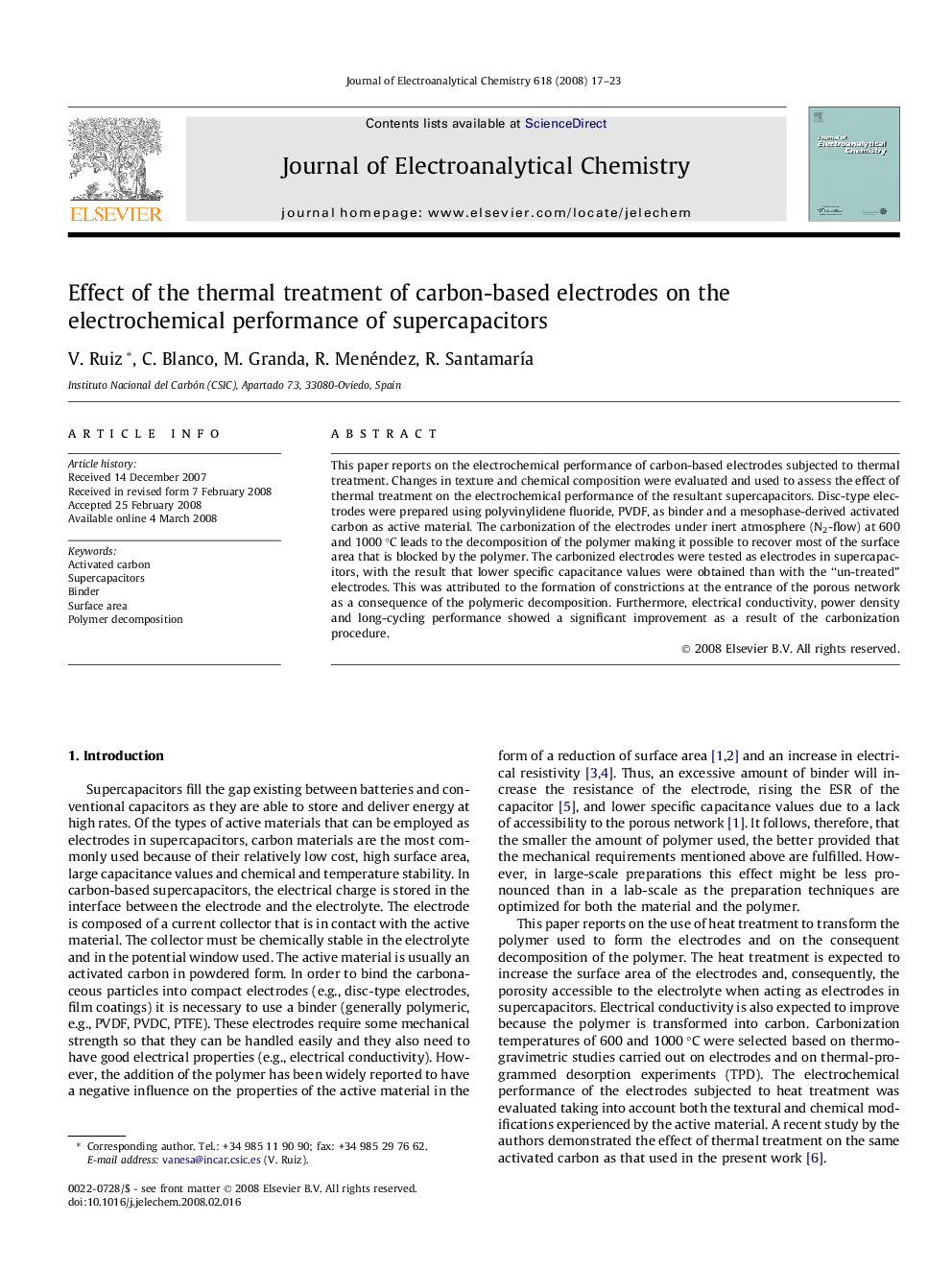| Article ID | Journal | Published Year | Pages | File Type |
|---|---|---|---|---|
| 220576 | Journal of Electroanalytical Chemistry | 2008 | 7 Pages |
This paper reports on the electrochemical performance of carbon-based electrodes subjected to thermal treatment. Changes in texture and chemical composition were evaluated and used to assess the effect of thermal treatment on the electrochemical performance of the resultant supercapacitors. Disc-type electrodes were prepared using polyvinylidene fluoride, PVDF, as binder and a mesophase-derived activated carbon as active material. The carbonization of the electrodes under inert atmosphere (N2-flow) at 600 and 1000 °C leads to the decomposition of the polymer making it possible to recover most of the surface area that is blocked by the polymer. The carbonized electrodes were tested as electrodes in supercapacitors, with the result that lower specific capacitance values were obtained than with the “un-treated” electrodes. This was attributed to the formation of constrictions at the entrance of the porous network as a consequence of the polymeric decomposition. Furthermore, electrical conductivity, power density and long-cycling performance showed a significant improvement as a result of the carbonization procedure.
